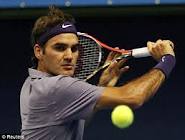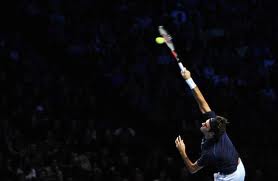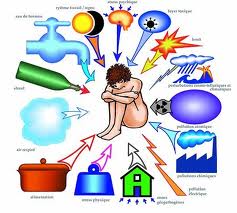Becoming a pensioner on the ATP tour
Pensioner status looms for everyone one day. Should an athlete be fearing it, or whooping with joy at the relief that comes when your "over-active" life comes to an end?

Old athlete
Recently I spoke about a 37 year old, Leander Paes, in action at the Barclays ATP World Finals. Not everyone knows it, but he arrived on the Singles tennis scene as a teenage prodigy with the same expectation as a Federer. Whilst we all know what Federer went on to achieve, Paes chose, very early on, to quit the singles tour and concentrate on doubles.
What a good decision that seems to have been, with Grand Slams titles, a lucrative career, and, comparatively, superstar status in his own land. He's still playing this year great doubles (for me Stepanek and Paes were the best pair in the event, and lost a tight semi-final). There is no talk of retirement, and in doubles it seems that careers go on a good few years longer than in singles. So a doubly good reason for Paes to quit singles so young.
At age 37 he bears no traces of becoming a pensioner, despite a little paunch, which is a frequent symptom of Indian cuisine, or diet, and straggly long hair, a reminder that when he was young you let your hair grow long to attract the girls. His demeanour is that of someone in his twenties, with alert physical movements, and a clear eye. He is still one to watch. Yet hardly any-one knows him. Unlike a Santoro for example, whose singles career was as long and successful as his doubles, Paes, by missing out on singles, forewent the razzmattaz and exposure of a singles star. Maybe another good reason for being a doubles specialist - he'll get another two or three years out of his body than Santoro did.
However, the real pensioner I spotted this week is Federer. He has had the most astonishing year at the age of 32, spent a good deal of it as No. 1, the best player on the planet. In October he slipped back to No. 2, more because of the quirks of the rankings list than because his game or results had gone off, or because someone was performing better than him. So he arrived in London, having had a particularly busy and successful year, lots of matches, lots of wins.

Retirement looms
We could have started to get worried about Federer at the Olympics. The only thing he never won was an Olympic gold medal, and he was roundly thrashed by Murray in the final of that. You could have anticipated an immediate retirement on the horizon. Federer just doesn't get roundly thrashed, and you'd think that by September Federer would have just let the end of season slip away quietly. On the contrary, he came back to have a superb autumn, and arrived in London with form, energy and desire.
The great set of the week was Federer's first set in the semi against Murray. Murray has an excellent record against Federer. Federer doesn't like players who don't make mistakes (like Nadal too), but Murray has a plus - he's very good at reading an attacking player's mind. His anticipation and defence is rock solid. Murray is not the world's greatest returner, but he's still able to threaten the Federer service games. The problem is the rallies afterwards. Federer hates getting into long rallies, so Federer starts risking a bit more on his serve, that annoyingly renders his serve less effective. The Federer serve has its own rythmn and cleanness that doesn't lend itself well to fiddling around. It's a great shot as it is.

Disputed Record
We also shouldn't forget that the ATP finals were played indoors, with near-perfect, constant conditions, and an "English" crowd that seemed to prefer Federer to Murray. Federer defintely responds to the London public, and Murray, not being English, and refusing to adopt English traits of smiliness, sportsmanship, humanity and friendliness, not totally at home before an English public.

Friendly
That first set was sensational. Clearly Federer had HATED losing the Wimbledon final, and had gone away and worked hard to put in place a game to deal with a menace. Murray has been a menace to Federer even when Murray was not winning so much.
In that set Federer served so well, sticking to his normal rythmn, so not going for too much. Murray has added a more aggressive return to his game this year - a sure product of the Lendl effect. But when you become more aggressive, you make more mistakes, which has been a consequence of the Murray improvement. Murray hates making mistakes, so Federer let Murray make the choices on the returns, hit great shots, or make an error.
So Federer, on his serve, was a little passive, but vigilant, because, due to the improvement of the Murray aggressive return, there'd be some good shots coming over. For this, Federer looked sharp and focussed, ready to hit 7, 8, or 9 cross courts, often taken early, to keep the initiative in the rally. Occasionally Federer, wearying, playing a slightly unnatural game, grew tired of this, attempted a long line too early, and paid the price by being sent into the other corner.
Murray, faced with a reliable Federer serve, and a player ready, frequently enough, to play long cross court rallies at speed, now had a new problem. His own game neutralised, Murray gets himself forced into going for even more aggressive serves and returns, and makes those very mistakes that drive him nuts.

Mad thoughts
After the match, Murray noted, in fact complained, that there weren't many long rallies, as if that had rendered it less of a spectacle for the public. What he really meant is that there were plenty of rallies, but cross court rallies, played at speed. Murray is a "send-you-to-sleep" player and the tempo was simply too high for him. The short rallies which Murray so detests, were in fact the ones where Murray himself, playing against type, decided to take on a risk, and failing.
There were also other short rallies, notably, a Federer error. Federer has never been afraid to make errors, as long as it has an objective to get in place a rythmn that'll win him the match. In this case, Federer missed a few fizzing cross courts, but this wouldn't have worried him one bit. This WAS the game plan, and he was going to stick with it, and execute. Murray doesn't like it, so deliver it, come what may.
Murray, the young pretender, ambitious, and with a hugely effective, and not unoriginal game, was very disappointed. Not only had he lost to a player who hates playing him, and who doesn't have a good record against him, but he lost to a pensioner.
Federer is at pensioner age. At the end of the match, Federer's face was drawn and haggard, and he looked his age, maybe even older. This one stupendous victory over Murray had cost him immense physical and mental energy over several months.
Like every good pensioner, Federer will now need a nice lie-down.

Have A Great Story About This Topic?
Do you have a great story about this? Share it!
Earn your pension with an
ATP WTA
Coach



